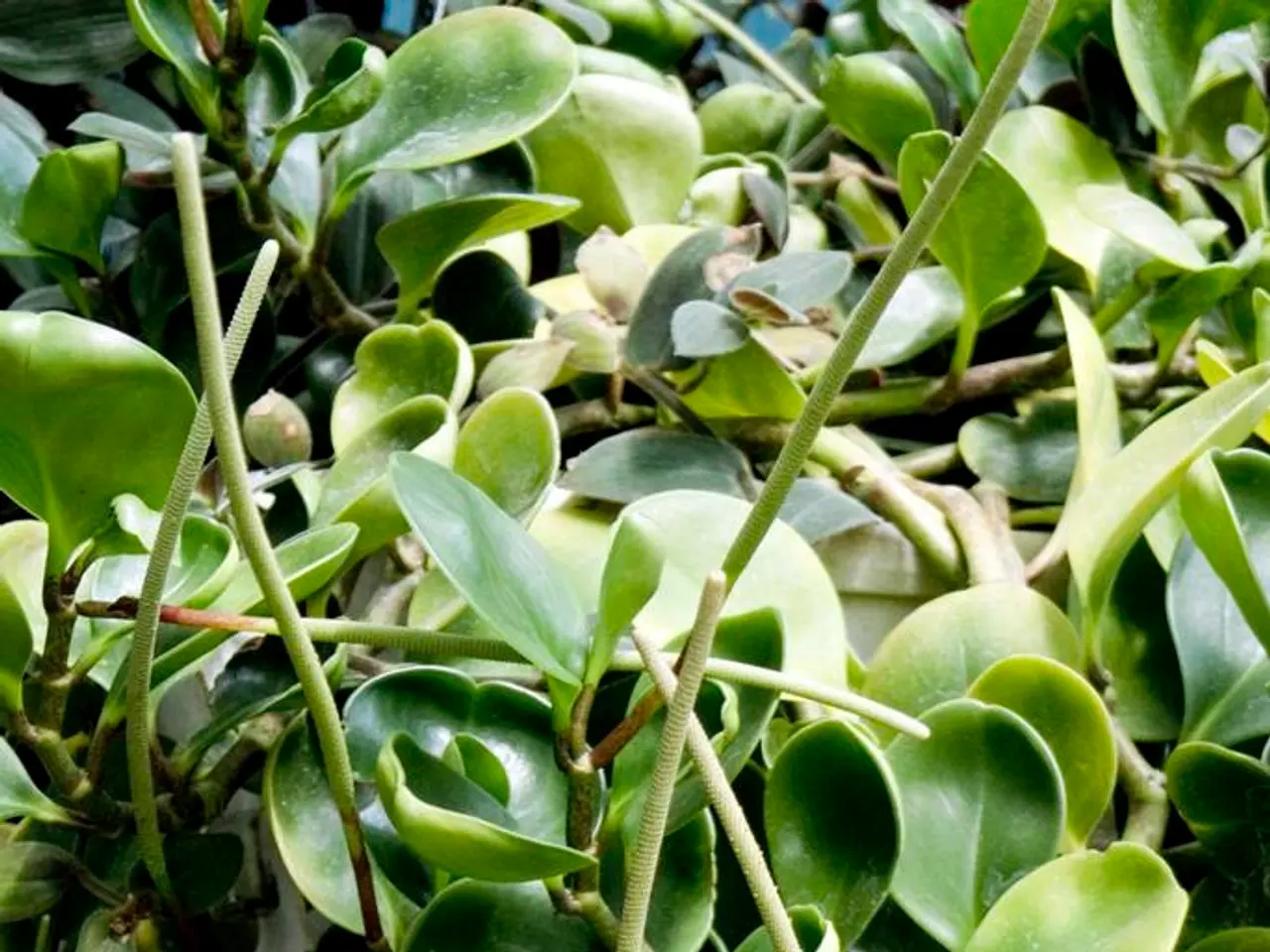AI-Enhanced Horticulture: Leveraging Intelligent Technology for Enhanced Plant Management
In the ever-evolving world of horticulture, artificial intelligence (AI) is making a significant impact, transforming the way we tend to our gardens. From smart watering systems to plant health monitors, AI technologies are enhancing plant wellbeing, optimising resource use, and promoting water-efficient, chemical-free gardening methods.
When selecting a smart watering system for your garden, efficiency, plant health, convenience, and adaptability to your garden’s specific needs should be the key considerations. Here are the main features to look for:
1. **Moisture Sensors and Soil Monitoring**: Smart watering systems often include moisture sensors that measure soil hydration in real-time, preventing both overwatering and underwatering. This feature helps deliver the precise water amount your plants need, promoting healthier growth and conserving water.
2. **Weather Adaptive Irrigation**: Look for systems that adjust watering schedules automatically based on weather conditions such as rainfall, temperature, and evaporation rates. This ensures water isn’t wasted during rain and compensates during hotter, drier periods.
3. **Programmable and Customizable Zones**: Smart systems offer the ability to create multiple zones with individual watering schedules tailored to different plant types or garden areas. This is crucial for gardens with diverse plant needs, ensuring each zone receives optimal water delivery.
4. **Remote Control via App**: The convenience of managing your irrigation system from a smartphone or computer is a significant advantage. You can monitor, adjust, and schedule watering sessions remotely, giving you full control even when away from home.
5. **Automated Scheduling and Timers**: Automated timers allow you to set and forget watering sessions, ensuring consistent irrigation without manual intervention. Systems with flexibility in scheduling (daily, weekly, or cyclic) make it easier to fit your garden’s unique requirements.
6. **Water Conservation and Efficiency**: Smart irrigation is designed to save water by replacing traditional flood irrigation methods with precise, measured water delivery based on sensor data. This reduces waste, lowers water bills, and supports environmental sustainability.
7. **Durability and Build Quality**: Since the system will be outdoors, durability in materials that resist rust, corrosion, and UV damage is important to ensure longevity and reliable operation.
Additional considerations include integration with broader smart home or garden systems for enhanced automation, support for fine irrigation techniques like drip irrigation for even more precise watering, and alerts and notifications for system status, faults, or extreme weather events.
A good plant health monitor should notify users of critical conditions, such as low moisture or excessive light, to take timely action to prevent plant stress. Gardening decisions can be informed by accurate, data-driven insights from AI, and smart watering systems can be controlled remotely via mobile apps, allowing users to monitor and adjust their watering practices from anywhere.
AI-powered solutions in agriculture also extend to autonomous tractors and soil sensors, helping farmers predict crop yields and potential challenges based on historical data, aiding informed decisions about planting and resource allocation. AI-powered crop monitoring uses image recognition and drone technology to monitor crop health in real-time, detecting issues like disease, pests, or nutrient deficiencies early on.
In summary, by choosing a smart watering system that offers soil moisture sensing, weather-based automatic adjustments, customizable zones, remote app control, and strong water-saving capabilities, you can ensure your garden receives optimal care efficiently and conveniently. The integration of AI in gardening is not just a trend, but a promising step towards a more sustainable, efficient, and enjoyable gardening experience.
- Despite the diverse realm of cooking, science plays a pivotal role in developing healthy, efficient cooking techniques and smart kitchen appliances.
- Climate-change impacts every aspect of our lives, even extending to fashion-and-beauty and food-and-drink industries, where eco-friendly alternatives and sustainable practices are becoming increasingly popular.
- In line with the growing trend of adapting technology into our everyday lives, smart-home-devices encompass more than just security systems and lighting control – they can also include devices for environmental-science, such as smart watering systems and plant health monitors.
- Embracing technology is not limited to home-and-garden; it reaches into our lifestyles as well, with smartphone apps enabling healthy-cooking, fashion choices informed by AI, and technology facilitating real-time monitoring of crop health in the agricultural sector.
- As our world becomes more technology-driven, innovation in gardening, through AI-powered plant health monitors and autonomous gardening tools, can help conserve resources, promote sustainability, and elevate the overall gardening experience.
- Exploring the realm of gadgets, we are witnessing advancements in everything from smart irrigation systems to gardening tools with AI capabilities, making gardening more efficient, convenient, and enjoyable for hobbyists and professionals alike.





